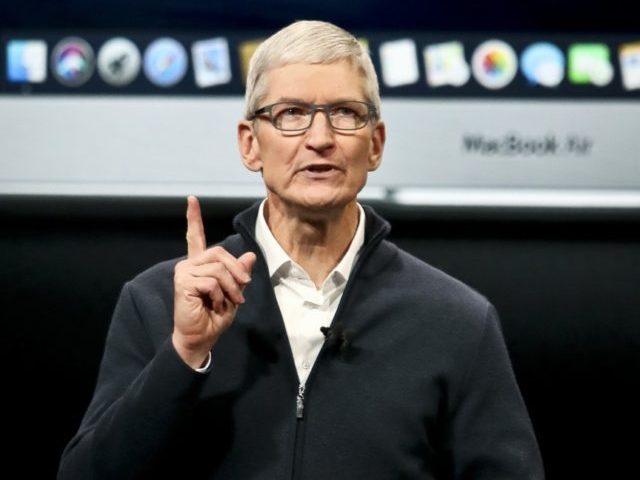The smartphone market has become a duopoly. Two companies, Apple and Google, have captured almost 99 percent of the global market for smartphone operating systems. Almost every new smartphone made today will either feature Google’s Android operating system, or Apple’s iOS.
As well as giving both companies a vast amount of power to censor apps for political reasons, the duopoly has also led to complaints about anti-competitive practices from app developers, who allege that the creators of smartphone operating systems can use their power to favor their own products.
To successfully distribute a smartphone app to consumers, businesses have to use Apple’s App Store for iPhones and iPads, and Google Play for Android devices. While it is technically possible to install an app on Google devices without going through Google play, app developers who want to reach Apple consumers do have to use Apple’s official app store.
App developers have raised competition concerns over this arrangement, because both Apple and Google also develop apps that they market to consumers through the app stores. For example, Apple’s iTunes is a competitor to Spotify, but both Spotify and iTunes are distributed to iPhone users through the App Store. This means that Apple controls the distribution channel that its competitors use to reach consumers.
Tile, an app developer that creates tracking devices linked to your smartphone, marketed as making it easier for people to find lost possessions, recently argued that Apple was using its control of iPhones to engage in unfair competition.
Via the Washington Post:
Tile long had benefited from Apple’s good graces: The company behind those tiny trackers for your most important possessions even had a rare shout-out onstage at the iPhone giant’s annual developer conference in 2018.
But the relationship soured as Apple inched closer toward rolling out a tool — built into its smartphone operating system — that seemed like “something that’s going to resemble our service,” Kirsten Daru, Tile’s general counsel, recalled in an interview ahead of her testimony Friday.
The result was “Find My,” an enhanced effort by Apple to help its customers better locate their lost devices. Not only does it mimic many of the features long offered by Tile, but it also has a major advantage: Apple turned on the location tracking that makes “Find My” functional by default. Rivals like Tile, meanwhile, must obtain users’ permission in deep, hard-to-find smartphone settings, Daru said, then reauthorize it when presented with follow-up reminders.
Spotify has also called out Apple over the fees it charges competing app developers, which can range up to 30 percent of all revenue earned through the app store.
There’s also a political problem to the combined dominance of Google and Apple. If both app stores decide to ban an app from their marketplaces, this can prevent free speech oriented platforms from competing with established social networks like Facebook and Twitter, effectively preventing them from reaching smartphone users. That’s exactly what happened to Gab, a first amendment friendly social network that started as an alternative to Twitter that was banned from both Google Play and the Apple App Store. Gab filed an antitrust lawsuit against Google in 2017 over its treatment.
The use of app stores as a tool of political censorship has drawn the attention of Republican lawmakers. In a comment to Breitbart News, Sen. Ted Cruz (R-TX) called out the practice.
“I have long said Big Tech has a staggering amount of power to censor and ban speech, manipulate search results, and shape our culture,” said Sen. Cruz. “The repeated bias and censorship practices of these companies is troubling and banning apps is just one method of censorship. I will continue pressing for transparency and accountability from Big Tech, and fighting against censorship.”
Allum Bokhari is the senior technology correspondent at Breitbart News.

COMMENTS
Please let us know if you're having issues with commenting.